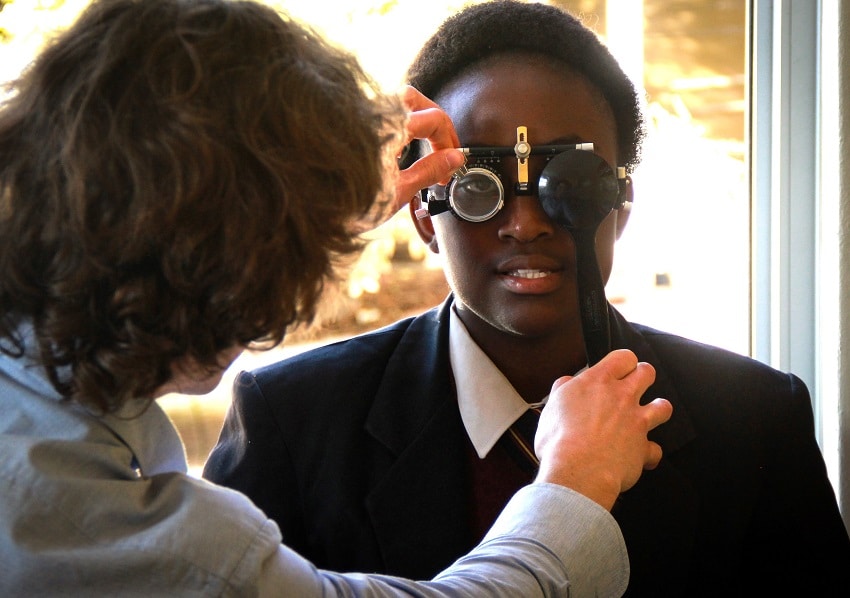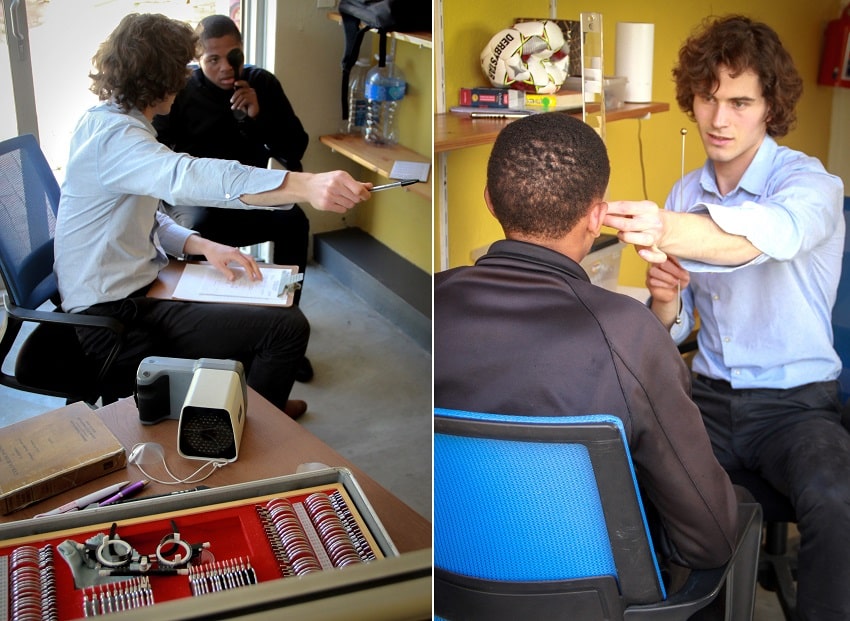As the scope of SOS Africa’s educational support expands across the Western Cape, the South African Education Charity’s staff increasingly encounter children suffering from visual impairment. This is hardly surprising given the limited health services available to rural South African communities. Although the country is blessed with highly qualified specialists in the private sector, this provides little comfort for those communities unable to afford such ‘luxuries.’ Instead, their children remain on long waiting lists, with delays often inevitable and their ability to learn impacted.

“Despite the government’s efforts in reducing inequity and improving access to healthcare, there still exist disparities in health status and accessibility to healthcare services, including eye care in South Africa. Most eye care providers (ophthalmologists and optometrists) in South Africa are with the private sector in the urban areas of the provinces, leaving minimal numbers in the public sector to cater for the majority of the populace.” (Lecuona K, Cook C. South Africa’s cataract surgery rates: why are we not meeting our targets? South Afr Med J. 2011;101(8):510–2.)
The troubling fact of the matter is that visual impairment has a far higher prevalence in disadvantaged rural communities than anywhere else. In addition to poor healthcare access, this is also down to poor living conditions and malnutrition:
“Reduced access to good nutrition is implicated in the development of visual impairment. For instance, inadequate intake of foods rich in micro-nutrients such as Vitamin A could lead to xerophthalmia, a type of Vitamin A deficiency that presents with symptoms of night blindness, and eventually blindness from corneal scarring when untreated.” (Prevalence and associated factors of vision loss in the South African National Health and Nutrition Examination Survey (SANHANES-1) | BMC Ophthalmology | Full Text)

To address these challenges, SOS Africa appealed to local private optometrists in the hope of finding support for its sponsored children and were soon contacted by Somerset West based Optometrists Michèle Hlava and Associates:
“Optometrists play a unique role in healthcare. In addition to diagnosing and treating eye conditions, we at Michèle Hlava Optometrists are committed to giving back to our community. Community outreach is not just an option; it is a responsibility.” (Michèle Hlava Optometrists, Head Optometrist, Donovan Savage)
After discussing the challenges, Michèle Hlava Optometrists agreed to provide eye tests and corrective eyewear for the SOS Africa sponsored children at a reduced rate. This will ensure that any visual impairment is identified and treated before it impacts on both these children’s ability to learn and their long-term eye health.
“Poor vision can significantly affect a person’s quality of life, limiting their educational and employment opportunities and hindering their overall well-being. Community outreach is not just about delivering healthcare; it is about building bridges, creating opportunities, and empowering individuals and communities. It is a responsibility that we at Michèle Hlava Optometrists are proud to embrace. Together, we can make a significant difference in the lives of those who need it most.” (Michèle Hlava Optometrists, Head Optometrist, Donovan Savage)

Thanks to funding providing by Oberoi Family Foundation, the testing process has already begun at SOS Africa’s Gordon’s Bay and Grabouw Education Centres with plans already in place to assist the first children identified with visual impairment.
“A big thank you to Michèle Hlava Optometrists and The Oberoi Family Foundation for recognising the need for eyecare for those who cannot afford private treatment. This partnership is already making a difference to many children in our care, giving them the ability and confidence to learn without impairment, alongside their peers.” (Li-andi Claassen, Operations Manager, SOS Africa Western Cape)
Click here to sponsor holistic support for the SOS Africa Children









